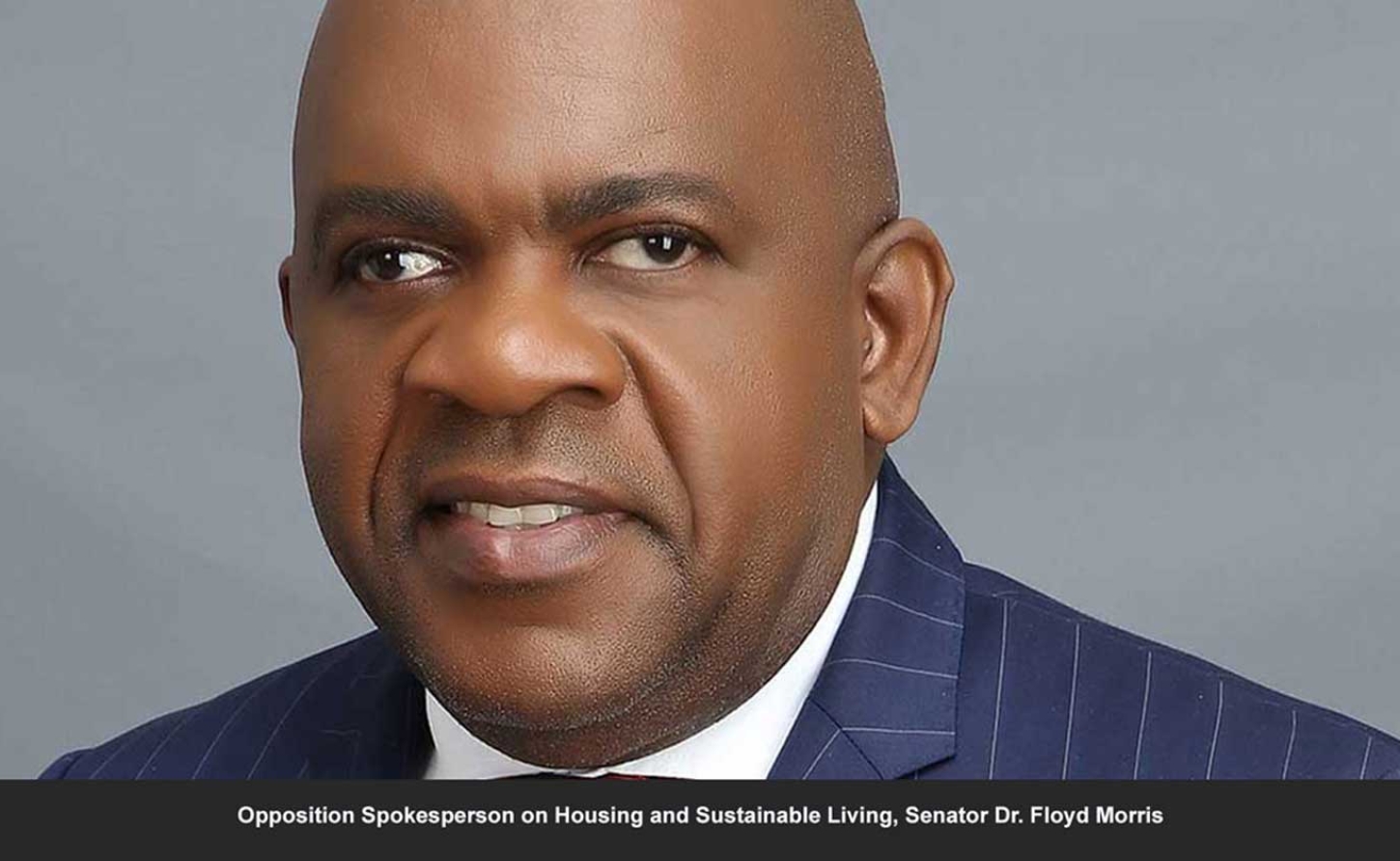JAMAICA | Numbers Don't Add Up: Opposition Challenges PM Holness on 70,000 Housing Promise

KINGSTON, Jamaica July 21, 2025 - The arithmetic is brutal, and Professor Senator Floyd Morris isn't mincing words.
Standing before reporters on July 21, the Opposition Spokesman on Housing and Sustainable Living delivered a scathing indictment of Prime Minister Andrew Holness's claim to have reached the ambitious target of 70,000 houses.
"This claim is a deception which is not supported by the data," Morris declared, branding the announcement a "bare-faced lie."
The accusation cuts to the heart of one of Jamaica's most pressing social challenges—a housing crisis that affects thousands of families desperately seeking affordable shelter.
But beyond the human cost lies a more troubling question: Can Jamaicans trust their government's numbers?
The Mathematics of Deception
Morris's challenge isn't based on political rhetoric—it's grounded in cold, hard data that paints a damning picture of government accountability.
According to the opposition spokesman, when Holness first outlined his housing vision in 2023, the numbers never quite added up.
The National Housing Trust (NHT) committed to building 43,000 houses, the Housing Agency of Jamaica (HAJ) pledged 15,000, but the remaining 12,000 to reach the 70,000 target remained mysteriously unaccounted for.
Even more revealing is the breakdown of those 43,000 NHT commitments: 35,000 were described as being "at various stages," while 8,000 were simply "to be figured out"—hardly the concrete planning one would expect for such an ambitious undertaking.
The historical context makes these promises even more questionable. For the past decade, the NHT has managed to deliver just over 2,000 houses annually to the market.
To meet Holness's timeline, the institution would need to more than decuple its output, delivering an average of 21,500 housing solutions over two years—a logistical feat that would require unprecedented transformation of Jamaica's construction sector.
When Government Documents Tell a Different Story
The most damaging evidence against the Prime Minister's claims comes from his own government's publications. Morris points to the Fiscal Policy Paper tabled by the Holness administration in March 2025, which reveals a stark disconnect between political promises and bureaucratic reality.
On page 40 of that document, the Trust admits it "expects to commence construction of 6,366 housing units, compared to its original target of 15,009" and "estimates to complete construction of 2,754, compared to its original target of 3,664."
These figures represent not progress toward the 70,000 target, but dramatic shortfalls from already modest goals.
The NHT's own Annual Reports compound this credibility crisis. In 2023, the institution brought 2,686 houses to market. In 2024, performance actually declined to 2,582 units. The trajectory is moving in precisely the opposite direction of what would be required to achieve the government's stated objectives.
Political Desperation or Policy Failure?
Morris's analysis goes beyond mere number-crunching to identify a broader pattern of governmental dysfunction.
"The PM is under pressure from the visionary housing policies delineated by the People's National Party, and has resorted to deceiving the people," he argued, characterizing Holness as "a man who is drunk on power and will do anything in his desperation to hold onto it."
This accusation gains particular potency when viewed alongside the Prime Minister's well-documented struggles with personal financial transparency.
Morris pointedly referenced Holness's "problems with reconciling his own personal accounts and to get his statutory declarations certified by the Integrity Commission"—suggesting a pattern of numerical inconsistencies that extends from personal finances to national policy.
The Human Cost of Political Theater
Behind these statistical disputes lies a more sobering reality: thousands of Jamaican families remain trapped in substandard housing or priced out of homeownership entirely.
While politicians engage in numerical sparring matches, the housing crisis continues to deepen, affecting everything from urban planning to social mobility.
The opposition's challenge forces uncomfortable questions about governance in modern Jamaica. If a government cannot accurately track and report on one of its flagship policy initiatives, what confidence can citizens have in its management of the economy, healthcare, or education?
Morris's demand for reconciliation of conflicting numbers across "various publications on the websites of the Office of the Prime Minister, the Jamaica Information Service and those in your Budget presentations from 2020 onwards" suggests a troubling pattern of inconsistent messaging that extends far beyond housing policy.
A Test of Democratic Accountability
Morris's call for the Prime Minister to "come clean to the Jamaican people" represents more than partisan politics—it's a fundamental test of democratic accountability.
In functioning democracies, governments rise or fall on their ability to deliver measurable results and maintain public trust through transparent reporting.
The housing controversy arrives at a particularly sensitive moment in Jamaica's political calendar, with elections looming and both parties positioning themselves as champions of working-class aspirations.
Housing policy has become a proxy battle for broader questions of competence and credibility that will likely define the next electoral cycle.
For the Jamaica Labour Party, the stakes couldn't be higher. Housing represents one of the government's most visible policy commitments, and failure to deliver—or worse, misrepresenting delivery—could undermine public confidence across multiple sectors.
The opposition's systematic dismantling of the government's claims provides a template for challenging other policy achievements.
Beyond the Numbers Game
Perhaps most damaging for the Holness administration is not just the mathematical impossibility of their claims, but the methodical way Morris has documented the inconsistencies using the government's own publications.
This isn't opposition speculation—it's forensic analysis of official documents that reveals either spectacular incompetence in record-keeping or deliberate misrepresentation of achievements.
As Jamaica grapples with economic recovery, social inequality, and the ongoing challenges of development, the housing controversy serves as a microcosm of broader governance challenges. Citizens deserve leaders who can not only articulate ambitious visions but deliver measurable progress toward achieving them.
The mathematics of housing delivery may seem technical, but the implications are profoundly political. In a democracy, numbers matter—and when they don't add up, neither does public trust.
-30-
